
Geidorf: The Heartbeat of Graz's Vibrant Culture
Located just north of Graz's historic city center, Geidorf is a neighborhood that beautifully blends the old with the new. As one of the city's most sought-after areas, Geidorf attracts visitors with its lush parks, historic architecture, and lively cultural scene. It's a place where you can easily spend a day exploring charming streets, enjoying a leisurely picnic, or diving into the local arts scene. Geidorf is home to the University of Graz, which infuses the area with youthful energy and intellectual vibrancy. Strolling through the neighborhood, you'll encounter a mix of students, professors, and long-time residents, all contributing to its dynamic atmosphere. The neighborhood is dotted with cozy cafes, trendy bars, and unique boutiques, making it a perfect spot for a relaxed yet engaging visit. Don't miss a visit to the stunning Stadtpark, the green lung of Graz, where you can unwind amidst beautifully manicured gardens and historic monuments. The park also hosts various cultural events throughout the year, from open-air concerts to art exhibitions, offering a taste of the local culture. For a touch of history, take a walk to the nearby Schlossberg, an iconic hilltop fortress that offers panoramic views of the city. Geidorf is a neighborhood that offers a rich tapestry of experiences, making it a must-visit for any traveler to Graz.
Local tips in Geidorf
- Visit the Stadtpark early in the morning for a serene experience and to avoid crowds.
- Explore local cafes and try Austrian pastries like Sachertorte or Apfelstrudel.
- Check out the University of Graz campus for its impressive architecture and lively atmosphere.
- Bring comfortable walking shoes to navigate the hilly terrain around Schlossberg.
- Look out for local events and festivals happening in the neighborhood to fully immerse in the local culture.
Geidorf: The Heartbeat of Graz's Vibrant Culture
Located just north of Graz's historic city center, Geidorf is a neighborhood that beautifully blends the old with the new. As one of the city's most sought-after areas, Geidorf attracts visitors with its lush parks, historic architecture, and lively cultural scene. It's a place where you can easily spend a day exploring charming streets, enjoying a leisurely picnic, or diving into the local arts scene. Geidorf is home to the University of Graz, which infuses the area with youthful energy and intellectual vibrancy. Strolling through the neighborhood, you'll encounter a mix of students, professors, and long-time residents, all contributing to its dynamic atmosphere. The neighborhood is dotted with cozy cafes, trendy bars, and unique boutiques, making it a perfect spot for a relaxed yet engaging visit. Don't miss a visit to the stunning Stadtpark, the green lung of Graz, where you can unwind amidst beautifully manicured gardens and historic monuments. The park also hosts various cultural events throughout the year, from open-air concerts to art exhibitions, offering a taste of the local culture. For a touch of history, take a walk to the nearby Schlossberg, an iconic hilltop fortress that offers panoramic views of the city. Geidorf is a neighborhood that offers a rich tapestry of experiences, making it a must-visit for any traveler to Graz.
Iconic landmarks you can’t miss
Uhrturm
Experience the charm of Graz at the Uhrturm, an iconic historical landmark offering stunning city views and rich cultural heritage.
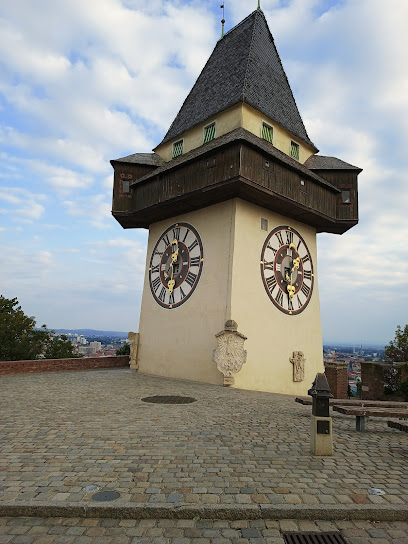
Graz Cathedral
Discover the stunning Graz Cathedral, a Baroque masterpiece in Austria, rich in history and architectural beauty, perfect for every traveler.
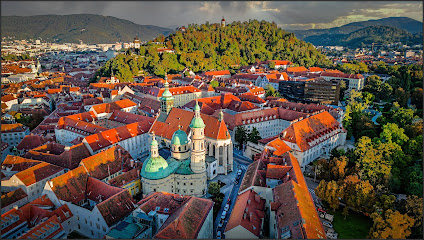
Grazer Burg
Explore the Grazer Burg, a medieval castle steeped in history, offering breathtaking views and a glimpse into Graz's rich cultural heritage.
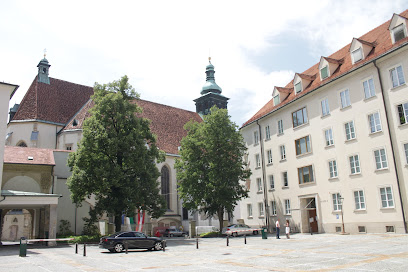
Glockenspiel
Discover the enchanting Glockenspiel in Graz, a historical landmark that mesmerizes visitors with its melodic chimes and rich cultural heritage.
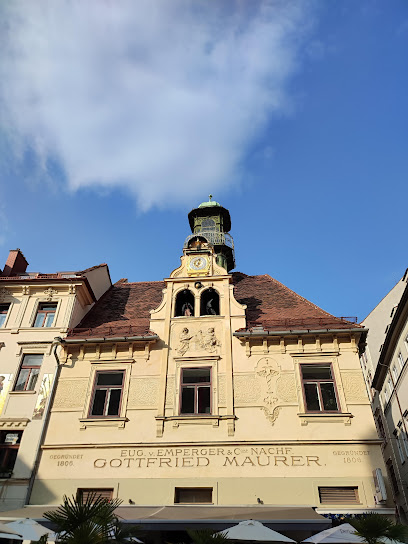
Freiheitsplatz Graz
Discover the cultural heart of Graz at Freiheitsplatz, a historical landmark that showcases Austria's rich heritage and vibrant community atmosphere.
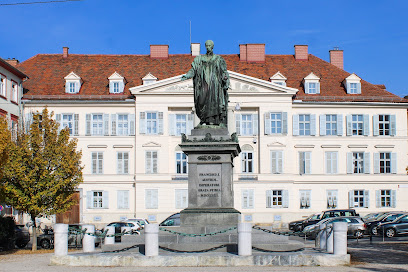
Orangerie Graz
Discover the captivating history and cultural vibrancy of Orangerie Graz, a stunning historical landmark nestled in the heart of Stadtpark.
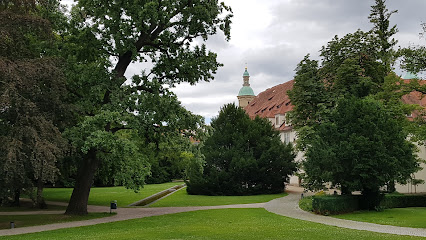
Burgtor
Discover Burgtor, Graz's historic gateway that showcases stunning Gothic architecture and invites you to explore the city's rich cultural heritage.
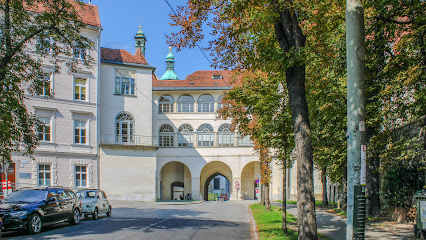
Statue Moritz Ritter von Franck Schöpfer des Stadtparkes
Discover the historic Statue of Moritz Ritter von Franck in Graz's Stadtpark, a serene landmark surrounded by natural beauty and rich cultural heritage.
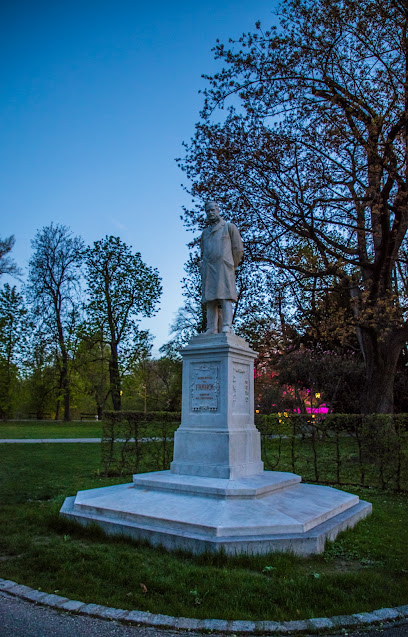
Denkmal Friedrich Ludwig Jahn
Discover the Friedrich Ludwig Jahn Memorial in Graz, a historic landmark celebrating sports and cultural heritage amidst a tranquil park setting.
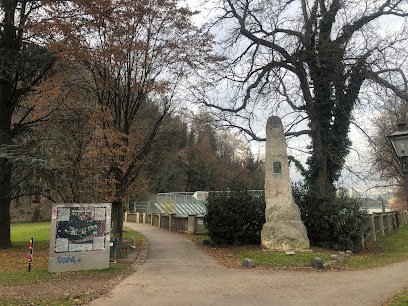
Friedensbaum
Discover Friedensbaum in Graz's Stadtpark, a tranquil haven symbolizing peace and harmony, perfect for relaxation and exploration.
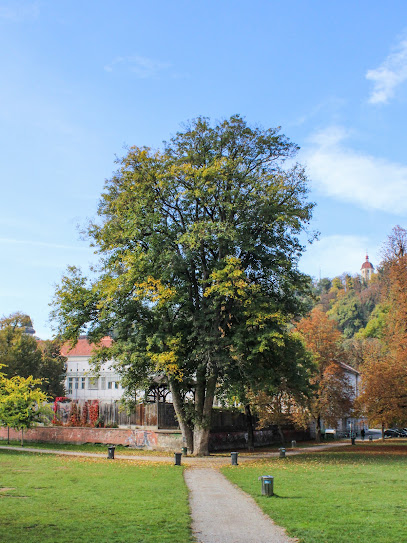
Essential places to dine
Caylend Restaurant
Experience unique flavors at Caylend Restaurant in Graz - a culinary haven blending local ingredients with international flair.
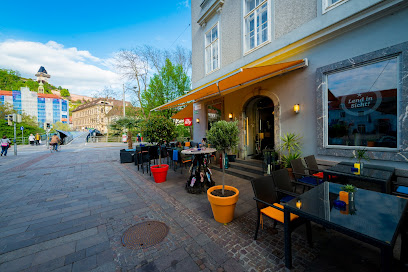
Restaurant Kornati Graz
Experience authentic Croatian cuisine in Graz at Restaurant Kornati – where every meal is a journey through flavor.
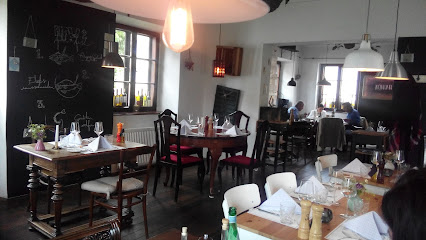
Al Pomodoro
Experience authentic Italian cuisine at Al Pomodoro in Graz – where every dish tells a story and every bite is a delight.
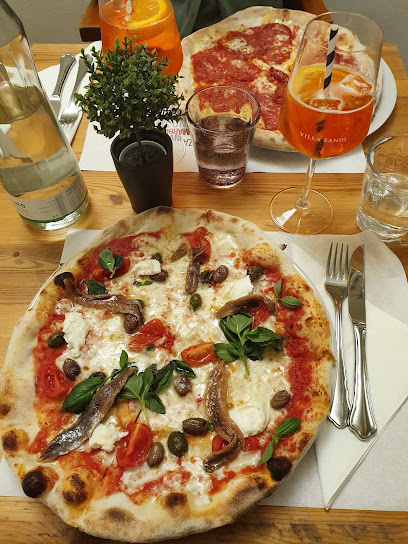
Spanische Weinstube Bodega
Experience authentic Spanish cuisine at Spanische Weinstube Bodega in Graz – where flavor meets tradition in a cozy atmosphere.
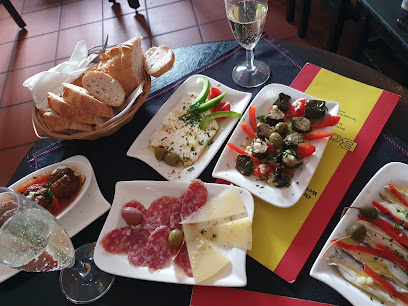
Das Lorenz
Experience the heart of Graz at Das Lorenz – where European cuisine meets charm in an inviting café setting.
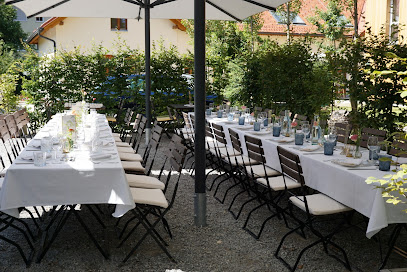
Geidorfstandl
Discover the vibrant flavors of Graz at Geidorfstandl, where delicious hamburgers and hot dogs await meat lovers in a friendly atmosphere.

Restaurant Margaretenbad
Experience authentic Italian cuisine at Restaurant Margaretenbad in Graz - where quality meets tradition in every dish.
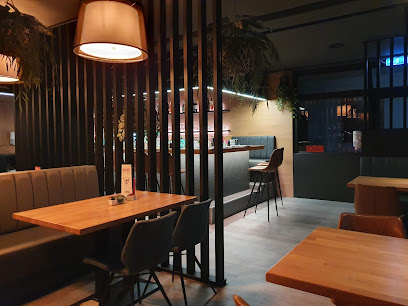
Gasthaus Geidorfstub'n
Discover the flavors of Austria at Gasthaus Geidorfstub'n - your go-to destination for traditional cuisine in Graz.
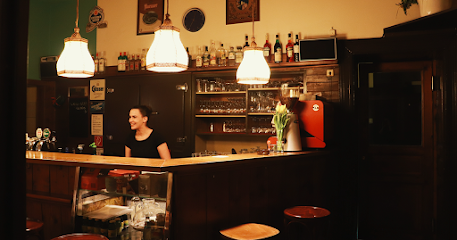
Pastaria
Experience authentic Italian cuisine at Pastaria in Graz - where every dish tells a story.
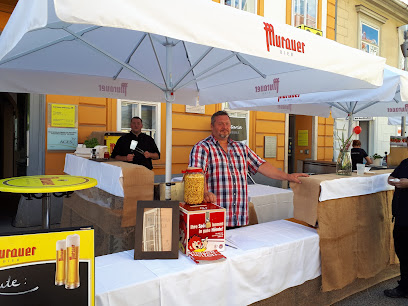
Uni Eno
Discover authentic Italian cuisine at Uni Eno in Graz – where every meal is a journey through Italy's rich culinary heritage.
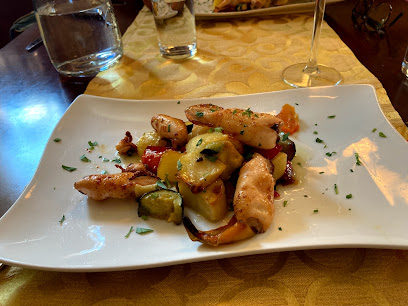
Markets, malls and hidden boutiques
Chic Ethic - Fair Trade Shop
Explore Chic Ethic in Graz for unique, ethically sourced gifts and fashion accessories that support fair trade and sustainable practices.
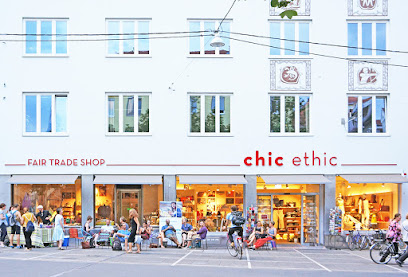
Berlinchen
Discover unique gifts and local treasures at Berlinchen, Graz's charming destination for costume jewelry, cutlery, and memorable souvenirs.
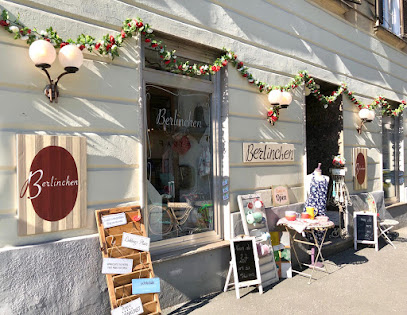
MuR – Design Store
Discover unique gifts and local craftsmanship at MuR – Design Store in Graz, where every item tells a story of creativity and design.
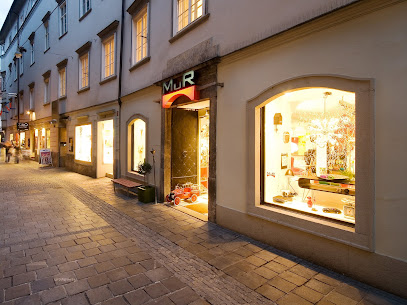
sunsetstar
Discover unique fashion and decor at Sunsetstar, a charming boutique in Graz, Austria, perfect for finding special souvenirs.
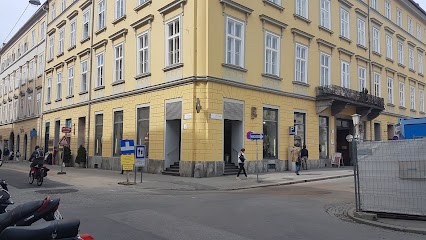
Unique Fashion Store
Discover Graz's Unique Fashion Store for stylish clothing, trendy sportswear, and youth fashion in a vibrant atmosphere.
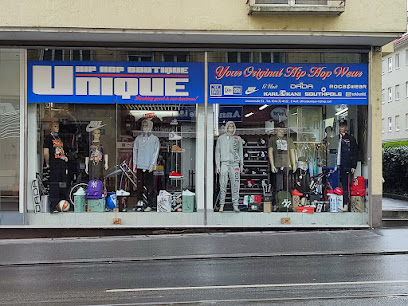
minimali
Explore Minimali, Graz's premier gift shop for organic products and unique gifts, perfect for every traveler seeking a memorable keepsake.
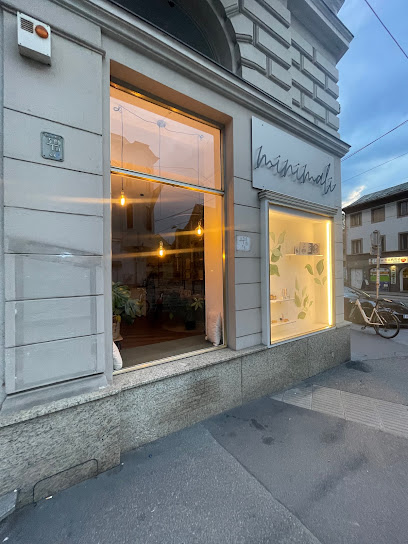
TASH LIVING
Explore TASH LIVING in Graz for an unforgettable shopping experience featuring unique gifts, books, and delightful café treats.
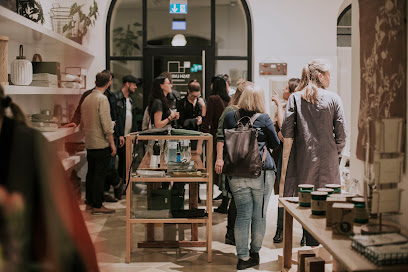
Kwirl Design Geschenk POP UP LAB
Explore the creativity of Graz at Kwirl Design Geschenk POP UP LAB, where unique local gifts and artisanal treasures await every visitor.
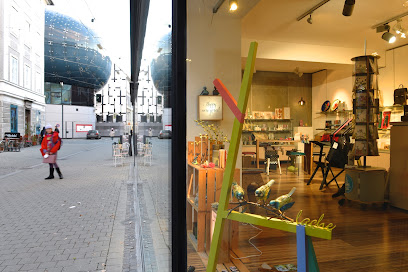
Laden (noch) ohne Namen - Second Hand
Explore the charm of second-hand shopping at Laden (noch) ohne Namen in Graz, where unique vintage finds await every fashion enthusiast.
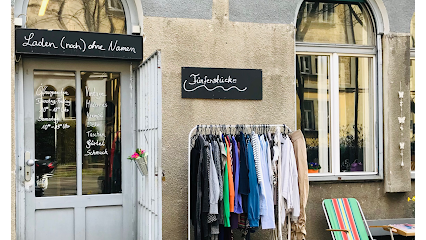
ARTgerecht
Explore Graz's creative spirit at ARTgerecht, the perfect gift shop for unique souvenirs and locally crafted treasures.
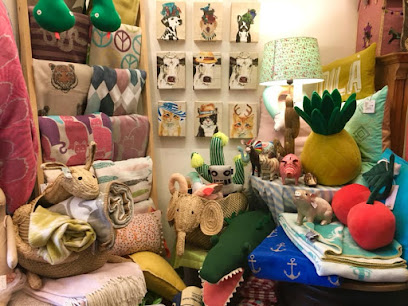
Ecommerce Graz
Discover the latest trends and timeless styles at Ecommerce Graz, a premier clothing store in the vibrant city of Graz, Austria.

Essential bars & hidden hideouts
The Churchill
Discover the art of cocktails at The Churchill, Graz's premier cocktail bar offering a sophisticated atmosphere and an innovative drink menu.
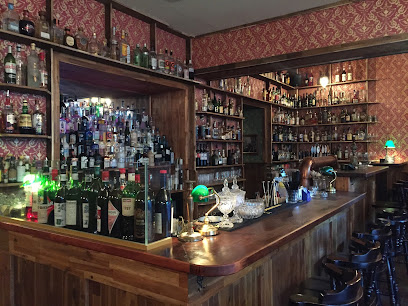
Bar Ernst Fuchs
Experience Graz's nightlife at Bar Ernst Fuchs, where exceptional cocktails and a vibrant atmosphere await you.
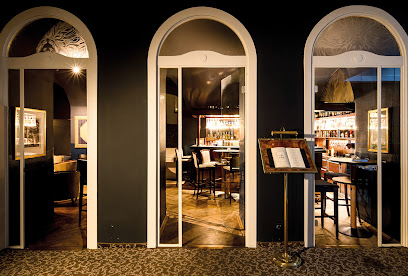
Monkeys Graz
Discover the lively nightlife at Monkeys Graz, your go-to bar and dance club for an unforgettable evening filled with music and fun.
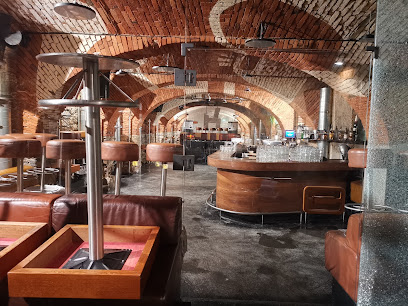
Caboose
Discover the vibrant charm of Caboose, a unique bar and cafe in Graz, perfect for unwinding and socializing with locals and fellow travelers.
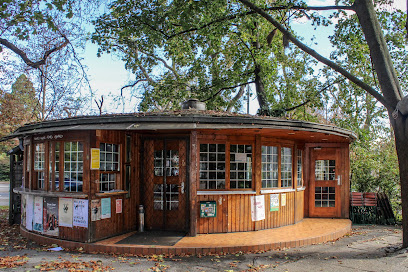
Revolution
Discover the lively Revolution Bar in Graz, where eclectic drinks and vibrant nightlife come together for an unforgettable evening.
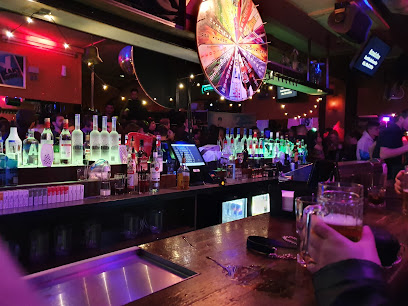
Merano
Experience the vibrant nightlife of Graz at Merano, a chic bar and cocktail lounge offering exquisite drinks and a stylish atmosphere for all.
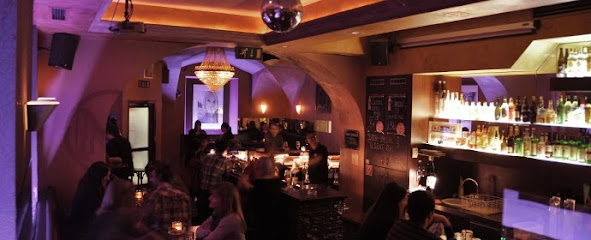
O bar
Discover Graz's O Bar, a cocktail bar and cafe renowned for its innovative drinks and vibrant atmosphere, perfect for any time of day.
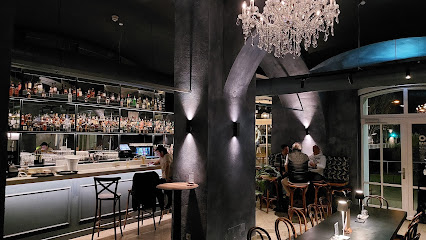
Moridal - Die Bar
Experience the vibrant nightlife of Graz at Moridal - Die Bar, where cocktails, music, and dancing come together in a stylish atmosphere.
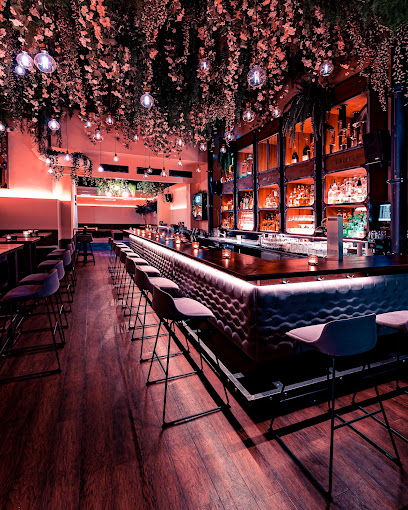
Humboldtkeller
Discover the heart of Graz's nightlife at Humboldtkeller, a vibrant bar offering delightful drinks and a friendly atmosphere.
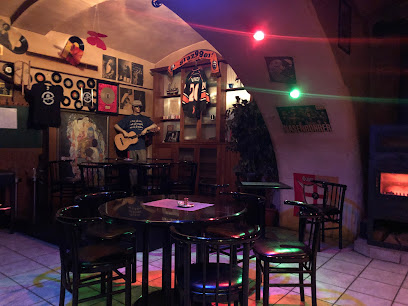
Drops Bar
Experience the vibrant atmosphere and exceptional drinks at Drops Bar in Graz, a hidden gem perfect for memorable nights out.
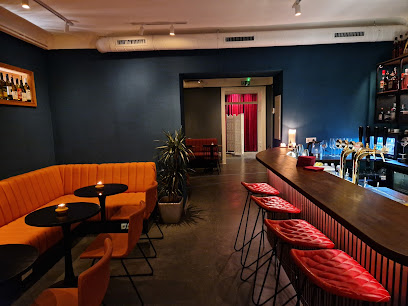
Local Phrases
-
- HelloServus
[Ser-voos] - GoodbyeAuf Wiedersehen
[Owf Vee-der-zay-en] - YesJa
[Ya] - NoNein
[Nine] - Please/You're welcomeBitte
[Bit-te] - Thank youDanke
[Dank-eh] - Excuse me/SorryEntschuldigung
[Ent-shool-dee-gung] - How are you?Wie geht's?
[Vee gayts] - Fine. And you?Gut. Und dir?
[Goot. Oond deer] - Do you speak English?Sprichst du Englisch?
[Shprikhst doo Eng-lish] - I don't understandIch verstehe nicht
[Eekh fair-shtay-eh nikht]
- HelloServus
-
- I'd like to see the menu, pleaseIch hätte gerne die Speisekarte, bitte
[Eekh hett-eh gehr-neh dee Shpice-kar-teh, bit-teh] - I don't eat meatIch esse kein Fleisch
[Eekh ess-eh kine Flysh] - Cheers!Prost!
[Prohst] - I would like to pay, pleaseIch möchte bitte zahlen
[Eekh merk-teh bit-teh tsah-len]
- I'd like to see the menu, pleaseIch hätte gerne die Speisekarte, bitte
-
- Help!Hilfe!
[Hil-feh] - Go away!Geh weg!
[Gay vegg] - Call the Police!Rufen Sie die Polizei!
[Roo-fen zee dee Po-lee-tz-eye] - Call a doctor!Rufen Sie einen Arzt!
[Roo-fen zee ine-en Ahrts] - I'm lostIch bin verloren
[Eekh been fair-loh-ren] - I'm illIch bin krank
[Eekh been kr-ank]
- Help!Hilfe!
-
- I'd like to buy...Ich möchte kaufen...
[Eekh merk-teh kow-fen] - I'm just lookingIch schau nur
[Eekh sh-ow noor] - How much is it?Wie viel kostet das?
[Vee feel kaws-tet das] - That's too expensiveDas ist zu teuer
[Das eest tso toy-er] - Can you lower the price?Können Sie den Preis senken?
[Ker-nen zee den price senk-en]
- I'd like to buy...Ich möchte kaufen...
-
- What time is it?Wie spät ist es?
[Vee shpayt ist es] - It's one o'clockEs ist ein Uhr
[Es eest iyn oor] - Half past (10)Halb elf
[Halb elf] - MorningMorgen
[Mor-gen] - AfternoonNachmittag
[Nah-mitt-ahg] - EveningAbend
[Ah-bent] - YesterdayGestern
[Ges-tern] - TodayHeute
[Hoy-teh] - TomorrowMorgen
[Mor-gen] - 1Eins
[Eyns] - 2Zwei
[Tsvey] - 3Drei
[Dry] - 4Vier
[Feer] - 5Fünf
[Foonf] - 6Sechs
[Zex] - 7Sieben
[Zee-ben] - 8Acht
[Akht] - 9Neun
[Noyn] - 10Zehn
[Tsen]
- What time is it?Wie spät ist es?
-
- Where's a/the...?Wo ist ein/der...?
[Vo ist iyn/dehr] - What's the address?Was ist die Adresse?
[Vas ist dee Ah-dres-seh] - Can you show me (on the map)?Können Sie mir das zeigen (auf der Karte)?
[Ker-nen zee meer das tsee-gen (owf dehr Kar-teh)] - When's the next (bus)?Wann kommt der nächste (Bus)?
[Vann kommt dehr nekhs-teh (Boos)] - A ticket (to ....)Eine Fahrkarte (nach ....)
[Iyn-eh Fahr-kar-teh (nakh)]
- Where's a/the...?Wo ist ein/der...?
History of Geidorf
-
Geidorf's history dates back to the early settlements in the region, with its origins intertwined with the development of Graz itself. The area has been inhabited since the Roman period, as evidenced by archaeological findings in the vicinity. The strategic location along the Mur River facilitated trade and communication, leading to gradual population growth and the establishment of agriculture in the region.
-
During the late medieval period, Geidorf became a part of the Habsburg territories, which significantly influenced its development. The Habsburgs promoted art and culture, leading to the establishment of numerous noble residences and the enhancement of the local infrastructure. This period saw the construction of several important buildings that reflect the Baroque style, contributing to Graz's architectural heritage.
-
In the 19th century, Geidorf emerged as a cultural center, particularly with the establishment of educational institutions. The University of Graz, founded in 1585, became a pivotal part of the community, drawing students and scholars from across Europe. This era saw an increase in intellectual activity and the flourishing of arts and sciences within Geidorf, shaping its identity as an academic neighborhood.
-
Geidorf, like much of Graz, was affected by the events of World War II. The neighborhood experienced significant turmoil and destruction during the war. Post-war reconstruction efforts focused on restoring damaged buildings and revitalizing the community. The period also marked a shift in the demographic landscape, as many residents moved into the area seeking affordable living conditions.
-
Today, Geidorf is characterized by a blend of historic charm and modern development. The neighborhood is home to a diverse population and features a mix of traditional buildings and contemporary architecture. Cultural events, art exhibitions, and festivals are held throughout the year, reflecting the vibrant community spirit. The area continues to honor its historical roots while embracing innovation, making it a dynamic part of Graz.
Geidorf Essentials
-
Geidorf is easily accessible from other neighborhoods in Graz. The main public transport options include trams and buses. Tram line 1 and bus lines 31 and 32 connect Geidorf to the city center and other districts. The journey from the city center takes approximately 10-15 minutes. Additionally, cyclists can reach Geidorf using well-marked bike lanes, while walking is also a pleasant option due to the neighborhood's picturesque streets.
-
Once in Geidorf, public transport is reliable and frequent. Tram line 1 runs through the neighborhood, providing access to key areas. Buses are also available for routes that might not be serviced by trams. For a more personal experience, consider renting a bicycle, as Geidorf is bike-friendly with several paths. Walking is ideal for exploring the charming streets, parks, and local cafes.
-
Geidorf is generally a safe neighborhood for tourists. However, standard safety precautions are advised. Avoid poorly lit areas at night and be mindful of your belongings in crowded places. Although there are no specific high-crime areas targeting tourists, it’s best to remain vigilant, especially near popular attractions and during busy times.
-
In case of an emergency, dial 112 for police, fire, or medical assistance. Local hospitals and clinics can provide urgent care; knowing the location of the nearest hospital is advisable. For minor health issues, pharmacies are available throughout Geidorf. It is also recommended to have travel insurance that covers medical emergencies.
-
Fashion: Do dress modestly, particularly when visiting religious sites like churches. Avoid overly casual or revealing clothing. Religion: Do respect local customs; when entering churches, cover your shoulders and knees. Public Transport: Do give your seat to elderly passengers; don't eat or drink on public transport. Greetings: Do greet locals with a friendly 'Grüß Gott' (God greet you). Eating & Drinking: Do try local specialties, especially at traditional restaurants. Don't waste food or refuse hospitality, as it can be seen as impolite.
-
To experience Geidorf like a local, visit the local markets, particularly the weekly farmer’s market for fresh produce and artisan goods. Engage with local shopkeepers and cafe owners, as they often enjoy sharing their stories and recommendations. Don't miss the beautiful parks like the Stadtpark for a leisurely stroll. Also, consider visiting local art galleries and small exhibitions to immerse yourself in the vibrant local culture.
Nearby Cities to Geidorf
-
Things To Do in Maribor
-
Things To Do in Ptuj
-
Things To Do in Velenje
-
Things To Do in Szombathely
-
Things To Do in Celje
-
Things To Do in Rogaška Slatina
-
Things To Do in Klagenfurt
-
Things To Do in Sopron
-
Things To Do in Zalaegerszeg
-
Things To Do in Kamnik
-
Things To Do in Eisenstadt
-
Things To Do in Bled
-
Things To Do in Škofja Loka
-
Things To Do in Ljubljana
-
Things To Do in Keszthely








